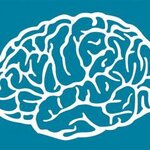
In the MGM musical "Gigi", Maurice Chevalier and Hermione Gingold perform "I Remember It Well", wherein everything they remember contradicts each other.
It's a charming number, and accurate, according to a new Northwestern Medicine study. Our memory, the authors write, takes fragments of the present and inserts them into past memories. Recollections are updated with current information.
Just in time for Valentine's Day, they even reveal that 'love at first sight' is more likely a trick of memory. The authors say this the first study to show specifically how memory is faulty, and how it…




